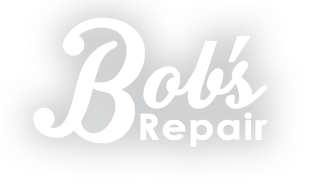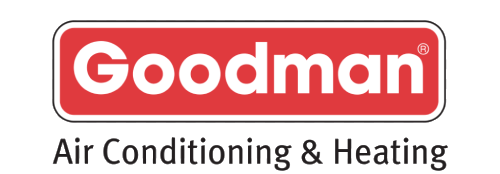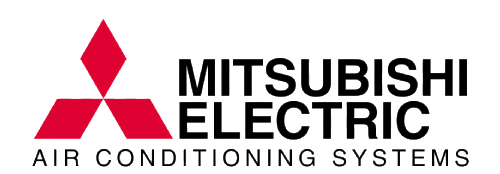Stumbling upon a pool of water around your HVAC system can quickly escalate from a minor inconvenience to a source of major worry. But before you let stress take over, understand that the solution might be simpler than you think. In this guide, we’ll explore the top reasons behind your HVAC’s unexpected leaks and arm you with the knowledge to tackle them head-on.
What You Will Find Out
- The primary role of condensate in your air conditioning system and why it’s a usual suspect in leakage scenarios.
- How a clogged condensate drain line can be your HVAC’s cry for help and the straightforward fixes you can apply.
- The silent yet impactful role of your air filter in maintaining the balance between efficiency and excess moisture.
- Why refrigerant levels in your AC need your attention to prevent freezing mishaps leading to leaks.
- The pivotal function of the condensate pump and what happens when it falls short.
Read on to not only grasp the “whys” behind your leaking HVAC but also to arm yourself with the “hows” of fixing it.
Understanding the Leak: The Role of Condensate
Air conditioners, by design, produce condensation. Imagine a cold glass on a hot day – that’s what happens inside your AC unit. As warm, humid air flows over the evaporator coil (the cold part), moisture condenses on its surface. This condensate, essentially collected water, needs a proper drainage system to prevent leaks inside your home.
If you notice your AC unit leaking (often referred to as an “ac leaking water” issue), a clogged drain line or malfunctioning component might be the culprit. Even though your AC may be working hard to cool the incoming air, a dirty filter or clogged drain can disrupt this process. The condensate might back up inside the unit, leading to leaks outside your home and potential water damage.
Tip: Keep Your AC Leak-Free with Expert Care
To sidestep common air conditioning issues, enlisting the expertise of a certified HVAC technician is crucial. Familiarize yourself with the basics of condensate management and take decisive action to maintain your system. This proactive approach ensures you can relax in a cool, comfortable home, free from the concerns of a leaky AC. Trust in routine maintenance to safeguard your indoor comfort.
Leak #1: Clogged Condensate Drain Line
One of the most frequent culprits behind an air conditioner leaking water is a clogged condensate drain line. This line is responsible for carrying the collected water out of your home. Over time, dirt, dust, algae, or mold can accumulate in the drain line, blocking the flow of water.
- Symptoms: Dripping water around the indoor air handler unit (the part that sits inside your home), water pooling near the outdoor unit, and musty odors.
- Solutions:
- DIY Fix: You can attempt to clear the clog yourself. Some methods include pouring a vinegar solution or using a wet/dry vac to suck out the blockage. Be sure to follow safety precautions and consult your air conditioner’s manual before attempting any DIY fixes.
- Call a Professional: If you’re uncomfortable tackling the clog yourself, or if the DIY method doesn’t work, it’s best to call a certified HVAC technician. They have the tools and expertise to safely and effectively clear the clog and ensure proper drainage.
Leak #2: Full Drain Pan
The drain pan sits underneath the evaporator coil and collects condensate before it exits through the drain line. If the drain line is clogged or there’s another issue preventing water from draining properly, the drain pan can overflow, causing leaking water inside your home.
- Symptoms: Similar to a clogged drain line, you might see water dripping from the indoor unit or pooling near the base.
- Solutions:
- Check the drain line for clogs as described previously.
- If the drain line is clear, there might be a problem with the drain pan itself. A cracked or damaged pan could also lead to leaks. In such cases, call an HVAC technician for inspection and potential replacement.
Leak #3: Dirty Air Filter
A clogged air filter can indirectly contribute to an air conditioner leak. Here’s how:
- A dirty air filter restricts airflow over the evaporator coil. This can lead to the coil becoming excessively cold, causing more condensate to form.
- If the condensate production exceeds the drain line’s capacity, it can back up and overflow the drain pan, leading to leaks.
- Symptoms: Leaking water along with reduced airflow and potentially, insufficient cooling.
- Solution: Regularly change your air filter according to the manufacturer’s recommendations, typically once a month during peak cooling seasons. Using a high-quality filter can also help improve efficiency and prevent clogs.
Leak #4: Low Refrigerant Levels
Refrigerant plays a vital role in the cooling process within your air conditioner. Low refrigerant levels can cause the evaporator coil to freeze over. As the ice melts, it can overflow the drain pan and lead to leaks.
- Symptoms: Leaking water accompanied by weak or insufficient cooling, and hissing noises coming from the unit.
- Solution: Adding refrigerant is a job for a qualified HVAC technician. They can diagnose the refrigerant leak, repair the source of the leak, and safely recharge the system.
Leak #5: Broken Condensate Pump
Some HVAC systems, particularly those where the drain line is located higher than the drain pan, rely on a condensate pump to lift the collected water and push it outdoors. If the condensate pump malfunctions, it can lead to water accumulating in the drain pan and overflowing, causing leaks.
- Symptoms: Leaking water around the indoor unit, especially if your HVAC system has a condensate pump.
- Solution: Call an HVAC technician to inspect and potentially replace the condensate pump.
Beyond the Basics: Additional Causes of Leaking Water
While the above factors cover the most common reasons for a leaking HVAC system, there can be other culprits as well:
- Improper Installation: If your air conditioner wasn’t installed correctly, the condensate drain line might be improperly pitched, preventing proper water flow. This is a situation best addressed by a qualified HVAC technician.
- Damaged Coil: A damaged evaporator coil can leak refrigerant, which can mix with condensate and lead to water leaks. Repairing or replacing a damaged coil is typically a job for a professional.
When to Call Professionals
If you’ve tried the DIY solutions for clearing a clogged drain line and changing the air filter, but your air conditioner is still leaking water, it’s time to call a Las Vegas HVAC technician. Here’s why:
- Safety: HVAC systems involve electrical components and refrigerant lines. Unless you have specific training and experience, it’s safer to leave repairs to a qualified professional.
- Diagnosis and Expertise: Diagnosing the exact cause of the leak can be tricky. A trained technician can quickly identify the issue and recommend the most appropriate solution.
- Proper Repairs: They have the expertise and tools to perform repairs correctly and ensure your air conditioner functions efficiently and safely.
- Preventing Further Damage: A leaking air conditioner can lead to water damage inside your home, mold growth, and even electrical issues. Prompt repairs by a professional can help prevent these costly problems.
Las Vegas Specific Considerations: Hot and Dry Climate
Las Vegas experiences a hot and dry climate for most of the year. This can put extra strain on your air conditioner, making it even more crucial to ensure it’s functioning properly. Here are some additional tips to keep in mind:
- Regular Maintenance: Schedule regular preventive maintenance with a qualified Las Vegas HVAC technician. This can help identify potential problems early on and prevent leaks before they occur.
- Stay Cool and Avoid Leaks: During the hottest months, avoid overloading your air conditioner by keeping your thermostat set at a comfortable but reasonable temperature. This will help your system run more efficiently and reduce the risk of leaks caused by excessive strain.
Keeping Your Cool and Leak-Free
A leaking air conditioner can be a nuisance, but it doesn’t have to disrupt your comfort. By understanding the common causes and taking proactive steps like regular maintenance and using clean air filters, you can help prevent leaks and keep your Las Vegas home cool and comfortable all year round. If you do encounter a leak, remember that a qualified HVAC technician is just a call away to diagnose and fix the problem quickly and efficiently.Bob’s Repair is here to help! Our team of Las Vegas-based HVAC technicians is fully equipped to handle all your air conditioning needs, from routine maintenance to leak repairs and replacements. Contact us today to schedule an appointment and keep your cool all summer long!










